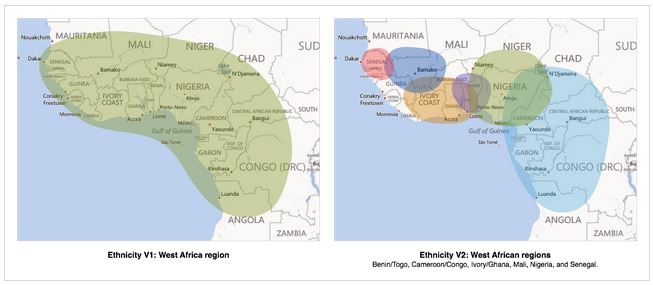AncestryDNA’s Breakthrough for West African Ancestry
AncestryDNA announced last week that it has been able to identify six unique historic populations in West Africa. It’s a breakthrough they call a “finer-resolution genetic ethnicity estimate for individuals with West African ancestry.” They have even used this technology to start connecting the dots between those groups and millions of African-Americans whose ancestral paper trail was annihilated during the era of slavery.
For this latter development, the AncestryDNA team uses the “cluster genealogy” approach: the concept that people from the same location often migrated to the same areas. Of course, slavery forced apart families and other natural migration groups, both in Africa before the crossing and in the U.S. or other destinations. And the few records that remain of many of these folks and their enslaved descendants don’t include full names, place of origin or other data we rely on to make family connections. (Learn more about how to research African-American roots in Genealogy Gems Podcast Episode 159 with Dr. Deborah Abbott.)
It’s encouraging to read that AncestryDNA has had some success hooking up regional groups of African-Americans with specific areas of Africa. “Though this project is still in its infancy, the science team has made some progress,” AncestryDNA reports. “First, we looked at the birth locations of individuals in the trees of all African Americans. Then, we looked for locations where, relative to all African Americans, there appeared to be an over-representation of birth locations in trees of individuals with a particular West African ancestry. For individuals with Senegalese genetic ethnicity, we found what seems to be an over-representation of birth locations in South Carolina and Georgia in the 1700’s and 1800’s.”
There’s more: check out AncestryDNA’s full blog post.





